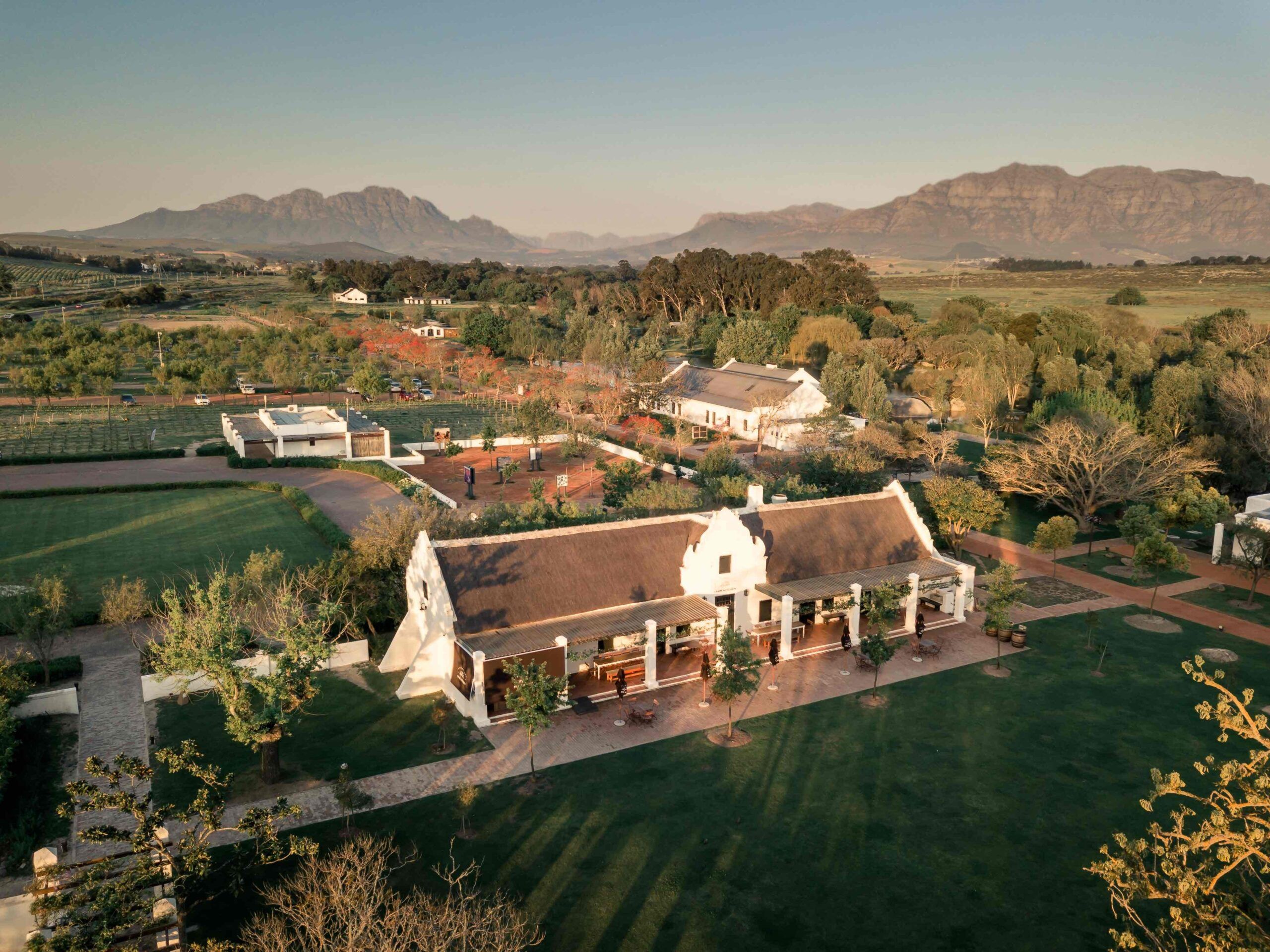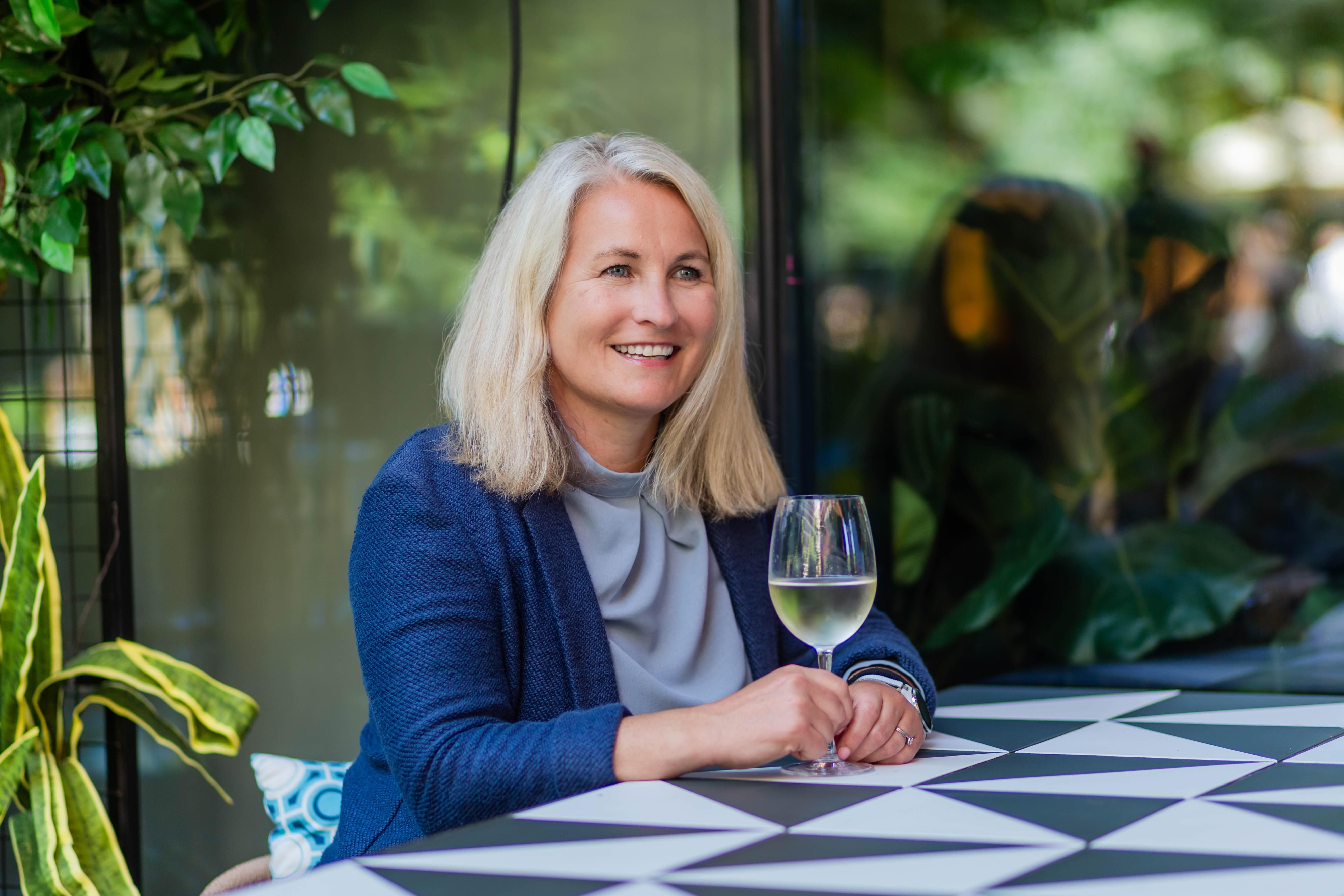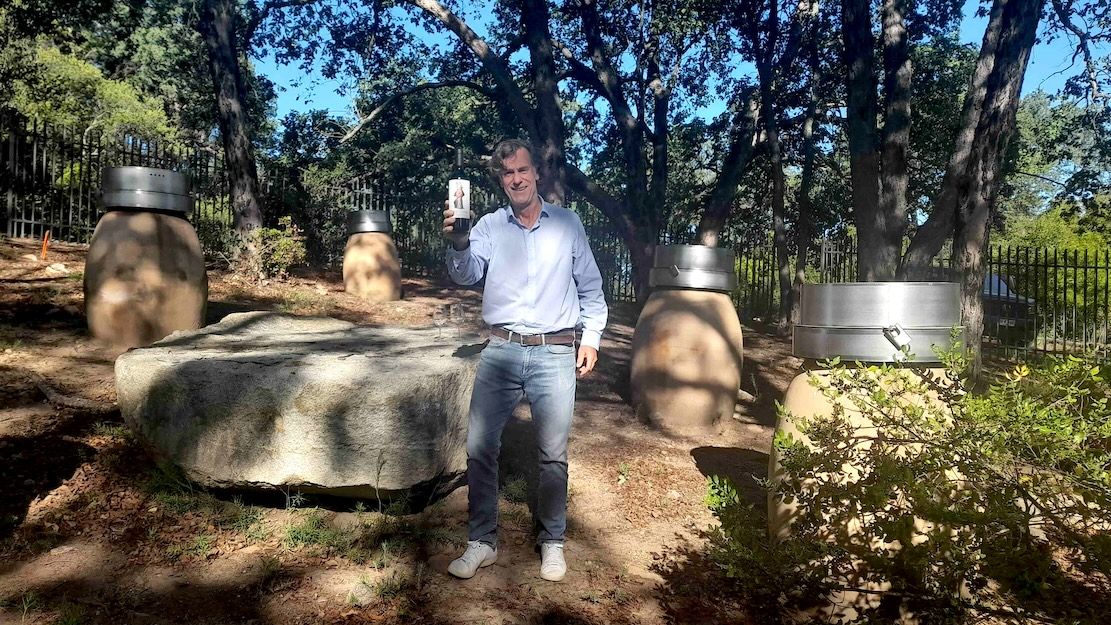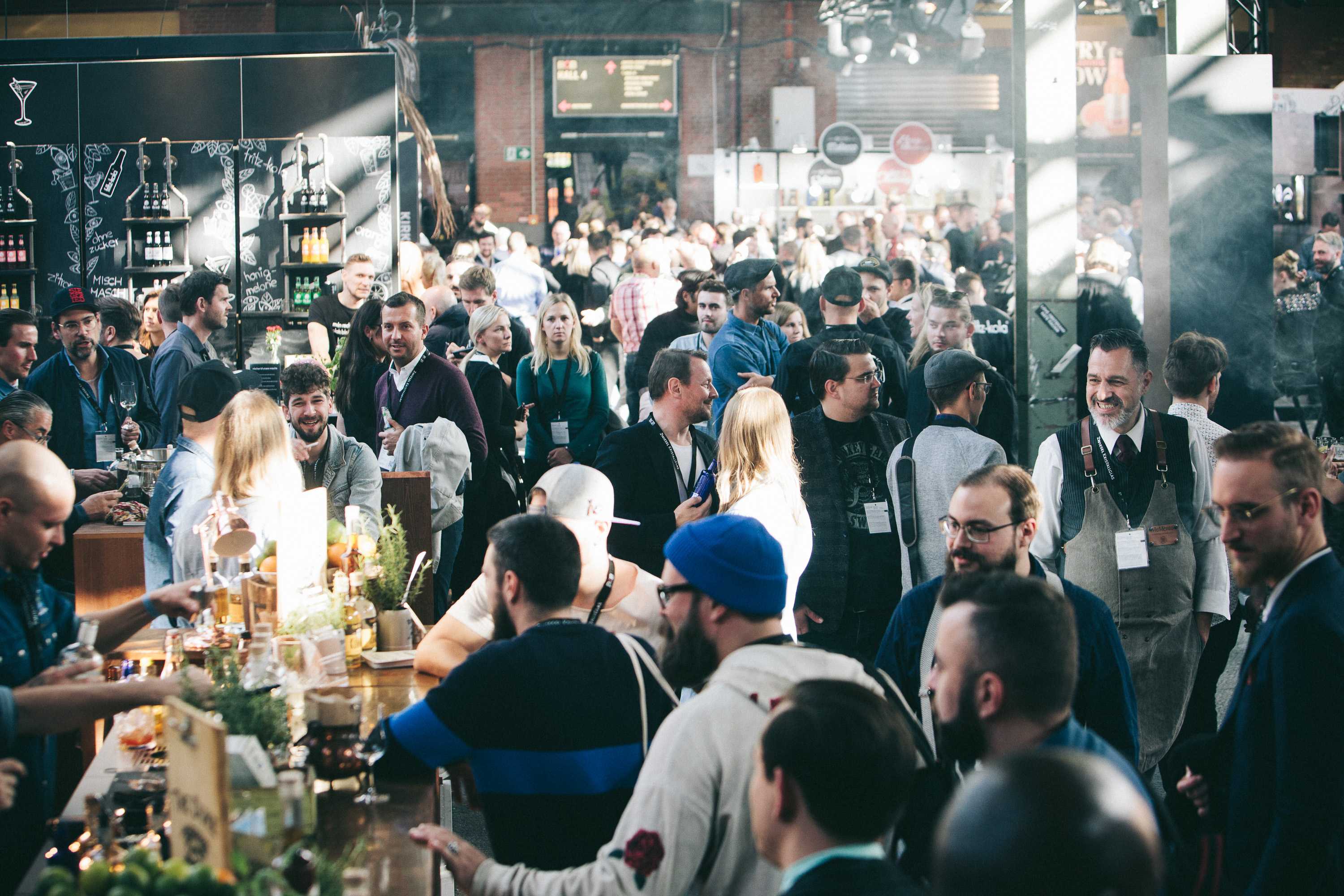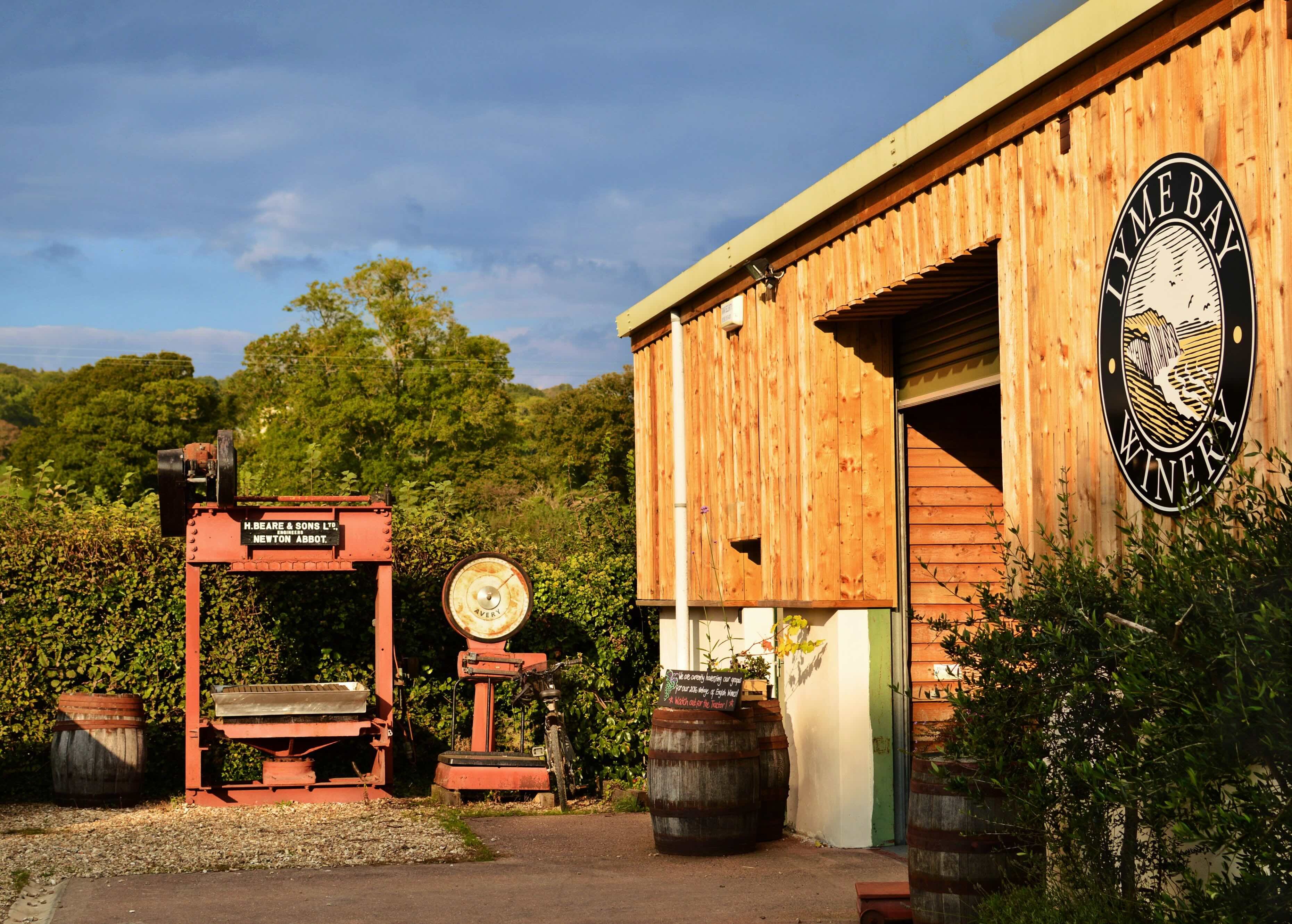Spier is now imported in the UK by Freixenet Copestick and has a number of ranges available for both the off-trade and the on-trade, through its hospitality business Jascots Wine Merchants.
For those that don’t know Spier, can you give some background to the business and your brands?
Spier is one of the oldest wine farms in South Africa, our recorded history dates to 1692, the same year that vines were first planted (wine was first made eight years later, in 1700). Managing director, Frans Smit, joined Spier in 1996 as cellar master, and has overseen the transformation from a small Stellenbosch producer into one of the country’s leading wineries. Today, Spier is sold in over 60 countries and is one of the three biggest-selling wine brands in South Africa.
Johan Jordaan was appointed cellar master in 2021 after 14 years as senior red winemaker. His team’s passionate commitment to making terroir-driven wines of the utmost quality has resulted in a slew of awards over the last decade. This includes Spier being crowned South African Producer of the Year by the International Wine & Spirit Competition (IWSC) twice — in 2011 and 2018.
Our wine ranges are as follows:
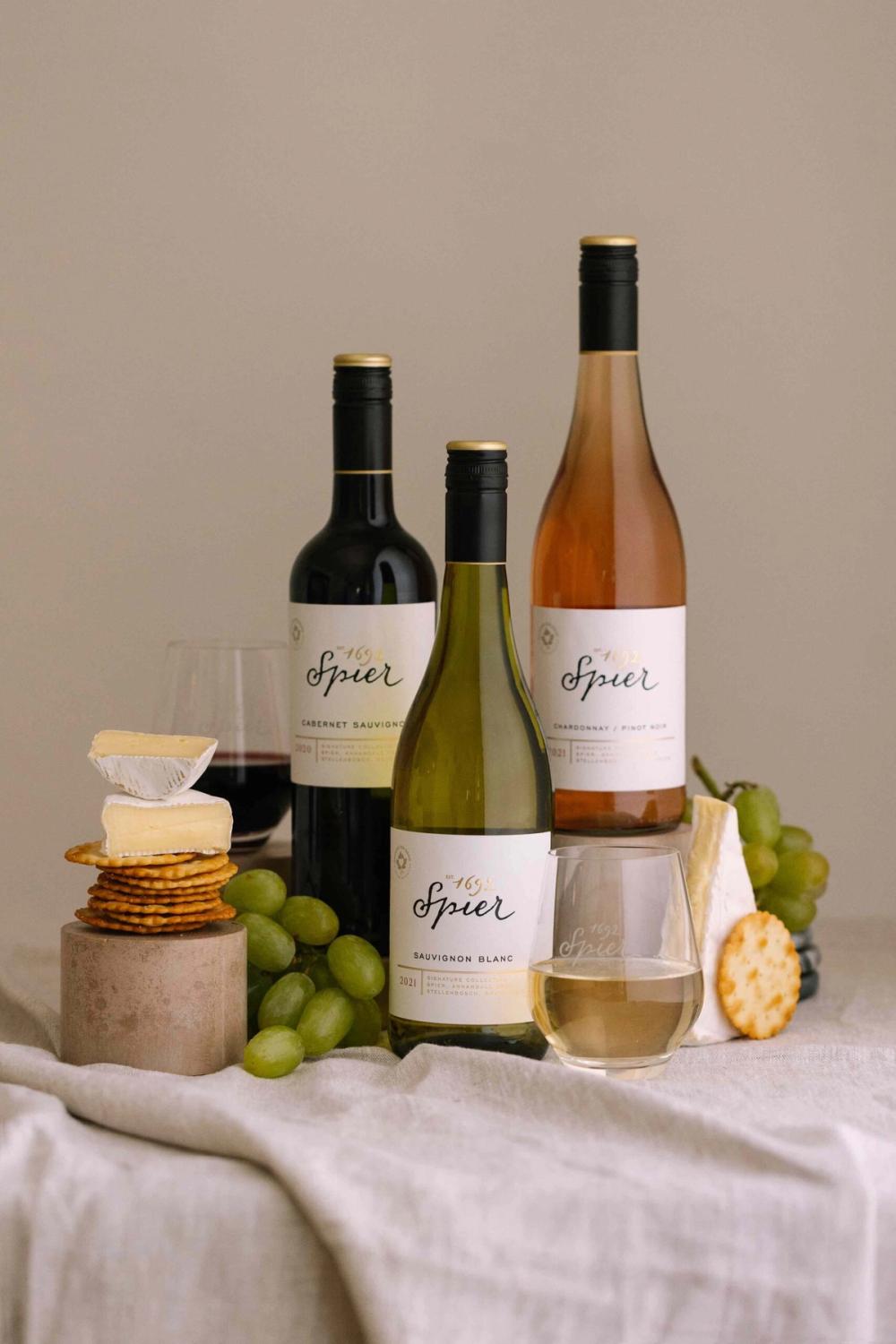
Spier has a number of ranges of wines for different channels of the trade
- Spier Signature: classic wines for everyday enjoyment
- Spier Seaward: a range of single varietals of coastal origin
- Spier Creative Block: a range of blends named after a Spier arts initiative
- Spier 21 Gables: top-notch single varietals inspired by the farm’s winemaking heritage
- Spier Frans K. Smit: Spier’s flagship wines are named after its MD and former Cellar Master
You have a strong commitment to sustainable farming – can you give us an idea of the steps you have taken?
We are committed to an ethical supply chain and comply to leading local and international ethical certifications (including WIETA and amfori BSCI). Our EnviroWines® accreditation recognises our commitment to using earth-friendly methods to produce grapes and wine. This “umbrella” certification incorporates two international certifications — the International Organisation of Vine and Wine (OIV) and the International Federation of Wine and Spirits (FIVS) — as well as South Africa’s Integrated Production of Wine (IPW). By complying with the rigorous requirements of each, we ensure that environmental stewardship informs every stage of production — from vine to bottle — while also taking into account the carbon emissions incurred throughout. Compliance with these social and environmental certifications forms part of Spier Growing for Good: a range of initiatives empowering communities to create positive social and environmental change.
In 2019, we became the first winery in the world to receive the Control Union Vegan Standard certification. The cellar is FSSC 22000- and organically-certified and we have been recognised as a WWF-SA Conservation Champion.
What areas ofSouth Africa are you making wine and sourcing your grapes?
We are constantly innovating and exploring new terroir to grow our supply base. Currently we source grapes from certified organic vineyards totalling 81ha in size (between 6% and 10% of our total production). We aim to increase this to 126ha by 2025.
Spier owned vineyards include:
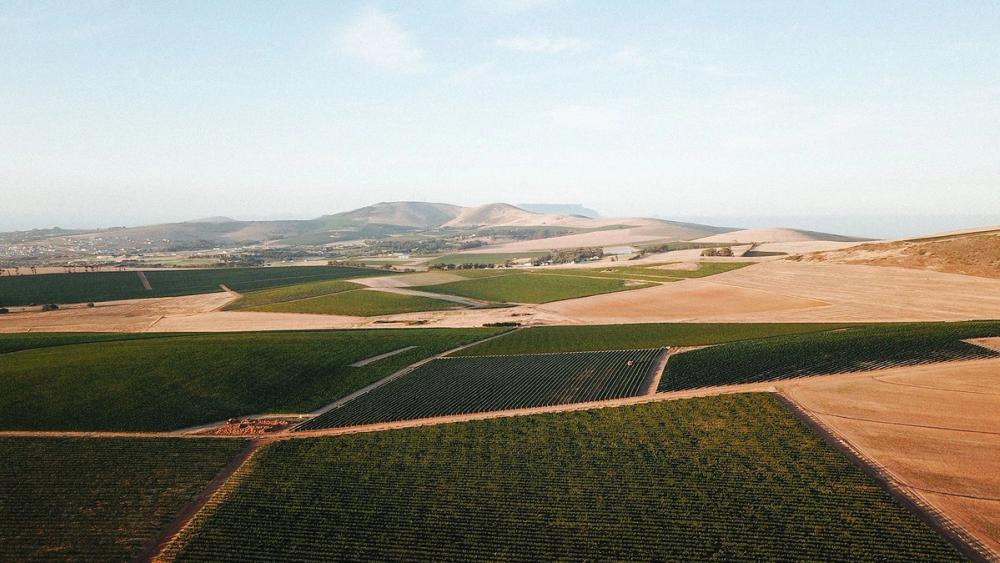
Spier works with a number of vineyards in different regions of South Africa including here at its Phisantekraal vineyards
- Spier Wine Farm, Stellenbosch (620 ha), of which 100ha is farmed organically with livestock and chickens and 19.72 ha planted with organic vineyards (Chenin Blanc, Cabernet Sauvignon, Merlot and Shiraz).
- Nooitgedacht, Paarl (151ha) of which 61.25 ha is planted with organically farmed vineyards.
- Helderberg, Stellenbosch, has 47ha planted with vineyards (and young vines not yet in production).
We have long-term contracts with specialist growers, enabling us to source grapes from Swartland, Darling, Malmesbury, Durbanville, Paarl, Stellenbosch and Elgin.
How would you describe the South African wine industry at the moment – what have been the big changes?
Agri business continues to face a number of challenges, the most important of which is disrupted energy supply. The country is experiencing power ‘loadshedding’ of up to eight hours a day currently which is putting significant pressure on production. The province continues to experience lower than normal rainfall.
Logistics and shipping has settled somewhat, while the supply chain remains under pressure and contributes to increased input costs. The industry is making significant strides in sustainability, transformation, innovation and improved quality perception around the world.
What are you doing to keep your range fresh and interesting?
While rooted in our farm’s centuries-old vinous heritage and respectful of winemaking tradition, we continue to innovate to meet evolving consumer preferences and our sustainability goals. In recent years, we have launched a range of canned wines not only due to consumers trends for convenience but also due to the infinitely recyclable nature of the packaging. We also responded to the rising demand for low- and no-alcohol wines by launching the Spier 5.5% and Spier De-alcoholised 0.5% ranges.
What is your strategy for the UK?
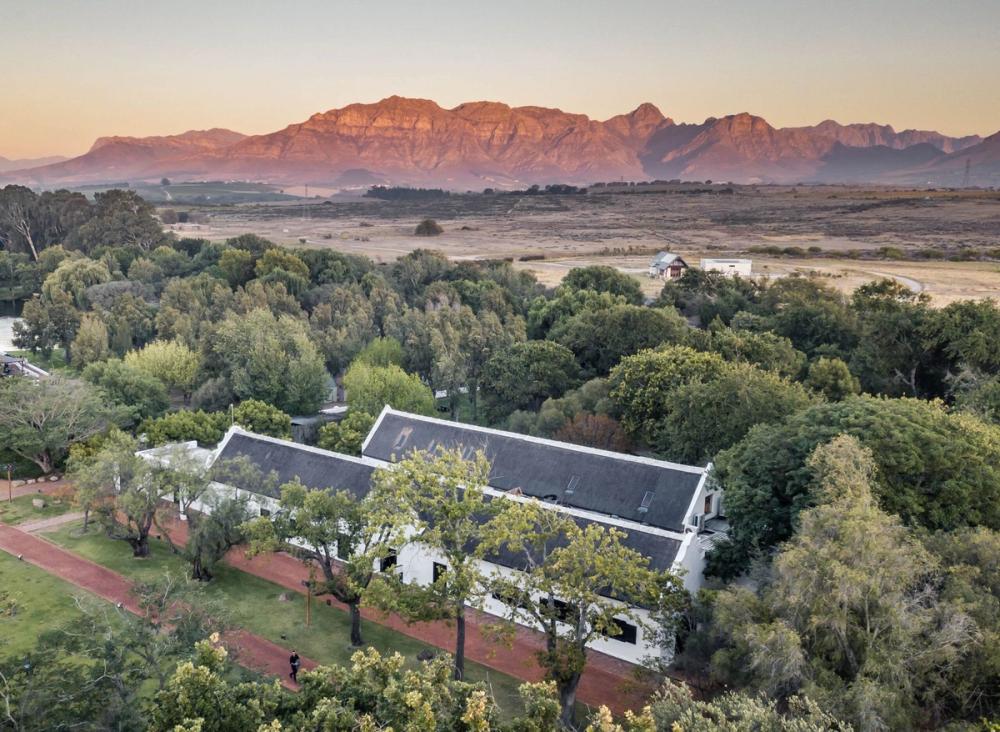
Spier has become a major wine tourism attraction in Stellenbosch
The UK is a focus market for Spier, with the ultimate goal of establishing Spier as a leading South African wine brand. Our strategy to do so is one of distribution backed by marketing investment and support. It is important for us to spend time in the market to build long standing relationships with customers.
You have just signed a new partnership with Freixenet Copestick – why do you want to work with them and what are your hopes for the year ahead?
Like Spier, Freixenet Copestick is also family owned and managed, and they understand the challenges of wine production through their ownership of various prominent wine brands.
Spier has a broad portfolio of wines which we divide into smaller ranges, each focussed on a specific segment of the trade. Freixenet Copestick supplies the HORECA and independent retail channels through Jascots Wine Merchants, who work with most of the top restaurants. They also own online retailer Slurp, which gives us the opportunity to reach consumers directly and to offer small parcels of wines that you would not normally see in the UK. Slurp is also involved with various events and festivals where we can specifically promote Spier’s range of canned wines.
As Frans Smit, managing director of Spier Wine Farm, says: “Spier’s strategic partnership with Freixenet Copestick brings the opportunity to grow our footprint through their extensive network, including specialist on-trade supplier Jascots and DTC e-com merchant Slurp. As the main South African group supplier in the Freixenet Copestick portfolio, Spier offers old world wine styles with new world innovation. Our common goal – delivering outstanding quality products in a sustainable manner – makes this partnership the perfect fit for us.”
This year we want to create greater consumer awareness through strategic listings in multiple retail and national on-trade accounts.
What are your specific plans for the on-trade and widening your distribution there?
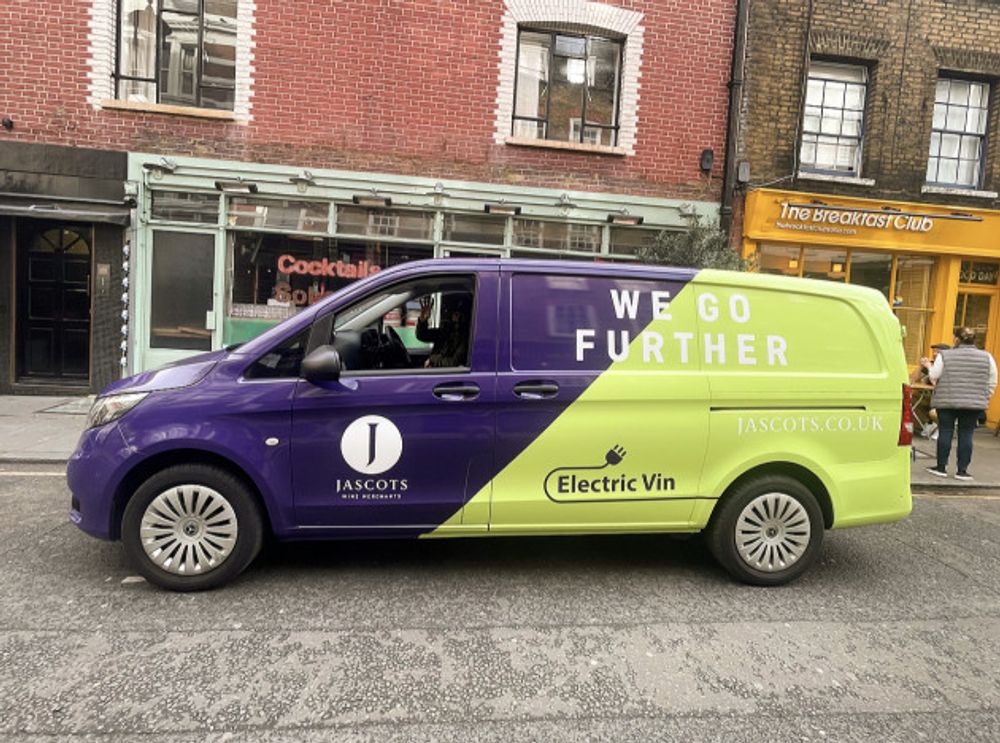
Jascots is giving Spier access to its wide network of leading, premium restaurants, bars, pubs and hotels through its own fleet of sustainable vans
Jascots Wine Merchants now carries most of our premium wines, including the Seaward, Creative Block and 21 Gables ranges. We look to work very closely with their team to build relationships and to grow our presence in the premium on-trade. We plan to visit the UK regularly to support our customers with staff training, tastings and winemaker dinners.
Spier owns more than 100 hectares of organic vineyards and we have been bottling organically certified wine since 2015. We are excited to launch the new Good Natured organic range in the UK at premium level. This will give on-trade customers an organic option as glass pour.
Freixenet Copestick already works with all the major national on-trade accounts. Spier’s Signature range is recognised and trusted by consumers, but we are also in a position to supply private labels. Together with our winemaking heritage stretching over 330 years, sustainability and ethical credentials, and consistent quality at critical volumes, it makes Spier an attractive offer for restaurant wine lists.
You are supporting the Star Wine List of the Year in the UK with The Buyer – can you say why you want to be involved?
Everything we do at Spier is with the consciousness of being sustainable. We hope with this partnership to gain more exposure amongst the on-trade with this partnership. By sponsoring the Sustainable Wine List category, we especially hope to cross paths with restaurants and on-trade partners that share our vision for sustainability and of course, to become part of their wine list initiatives.
You are partnering with the awards as sponsor of the Sustainable Wine List of the year -this is an area that you have a big focus onacross your business – can you explain why addressing sustainability is so important to you?
Our pioneering journey into regenerative farming has evolved in our business journey. The question we asked ourselves is: “Is sustainability enough?” We are at a critical time when resilience and regenerative thinking need to guide our business approach and decision-making. As our sustainability and human resources director, Heidi Newton-King, puts it: “We can’t be an sustainable business in an unsustainable world.”
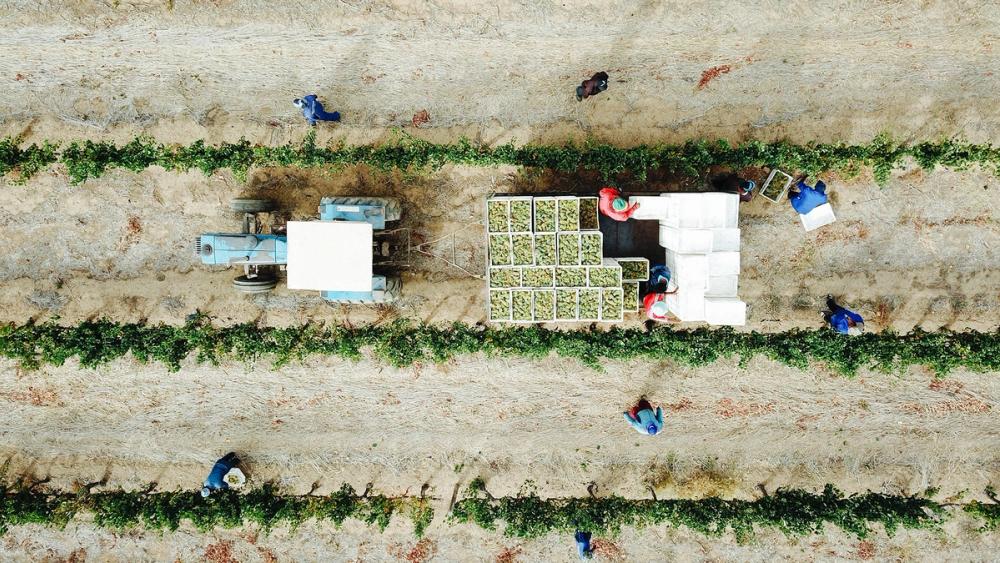
Spier works to ensure all the practices it employs at each stage of winemaking is as sustainable as they can be
Investing in a circular economy makes sense as it creates a vital, generous, abundant space that supports both ecosystems and communities.The ability for everyone to thrive over survive on this planet means we will need to do things differently. It’s not just about managing risk, or cutting down on emissions, but changing what we want the future to look like.
We are actively engaged in working with our partners on this business imperative to collectively shape a just and regenerative future.
What are the big steps you have taken in the last 18 months to make your wines and winemaking more sustainable?
We believe that the journey we are on is one of consistent steps.
We are committed to reducing our carbon footprint and nurturing healthy, carbon-rich soils. This means reducing our carbon footprint as much as possible, and offsetting the rest, taking into account the emissions from our direct operations, our energy consumption as well as our entire value chain (including suppliers and customers). In 2020, 5 of our growers to joined us on this journey to collaborate on methods to improve soil health and sequester carbon.We believe in sharing the insights we’ve gained from developing healthy, carbon-rich soils on our own farm so that others in the industry may also benefit. This will:
• Increase vineyards’ soil water retention, promoting drought resiliency
• Improve the consistency and quality of the grapes
• Allow the farmers to sell certified carbon credits (giving them a new income stream).
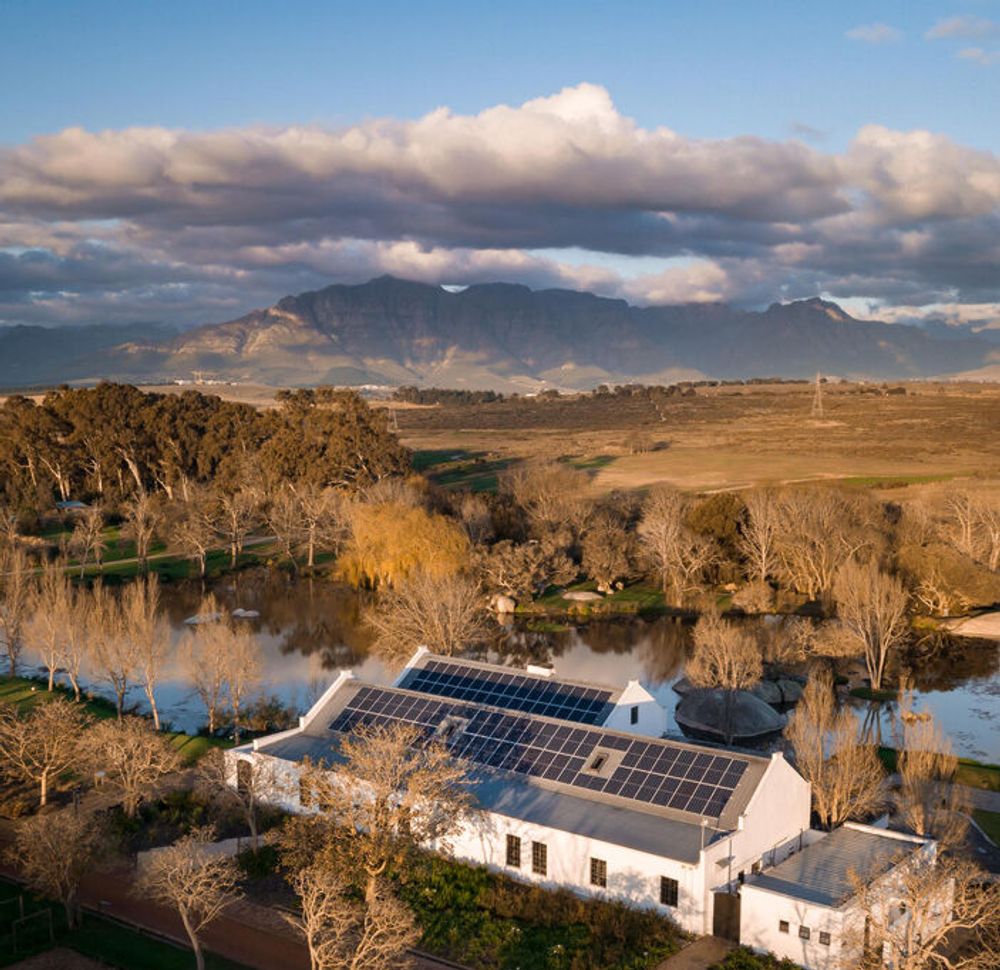
Spier has introduced solar panels at its winery as part of its commitment to be net zero by 2030
Energy is responsible for roughly 80% of our carbon emissions so this year we developed a energy master plan around generation – exploring ways to expand our generation of renewable energy sources – and further optimisation opportunities. On the farm, we implemented energy-saving methods and devices to reduce our energy consumption. Currently, nine solar installations supply our farm with electricity. In 2021 we saved 116 tons of carbon through carbon reduction strategies in our cellar.
We were very proud to roll out our complete range of organic wines internationally in the past 10 months – taking a previously niche offering to a commercial and internationally available range of organic wines.
We embarked on an ambitious packaging audit – measuring the recyclability of all key packaging elements and mapping the carbon footprint of two of our wine products.
Also, for the last 15 months, we managed to divert the remainder of our waste 2-5% that is not recycled to a waste-to-energy plant. In the twelve months to May 2022, our recycling and recovery efforts resulted in 73 832kg less CO2 equivalent in the atmosphere. This equals 671m3 of landfill volume saved through the diversion of waste.
What would you like to see in a sustainable wine list?
We’d like to see wines from producers that have regenerative thinking and practices at the heart of their business. From healthy soils to thriving relationships, ecosystems and communities – these producers and brands understand that to be sustainable encompasses the whole value chain.
Customers have come to expect that the businesses they choose to support are acting responsibly and sustainably.Wine is a natural product, and we need to work with the entire ecosystem and not just the vineyards to regenerate, replenish and create the conditions for more life.
What are your next plans in terms of making your business/ and wines more sustainable?
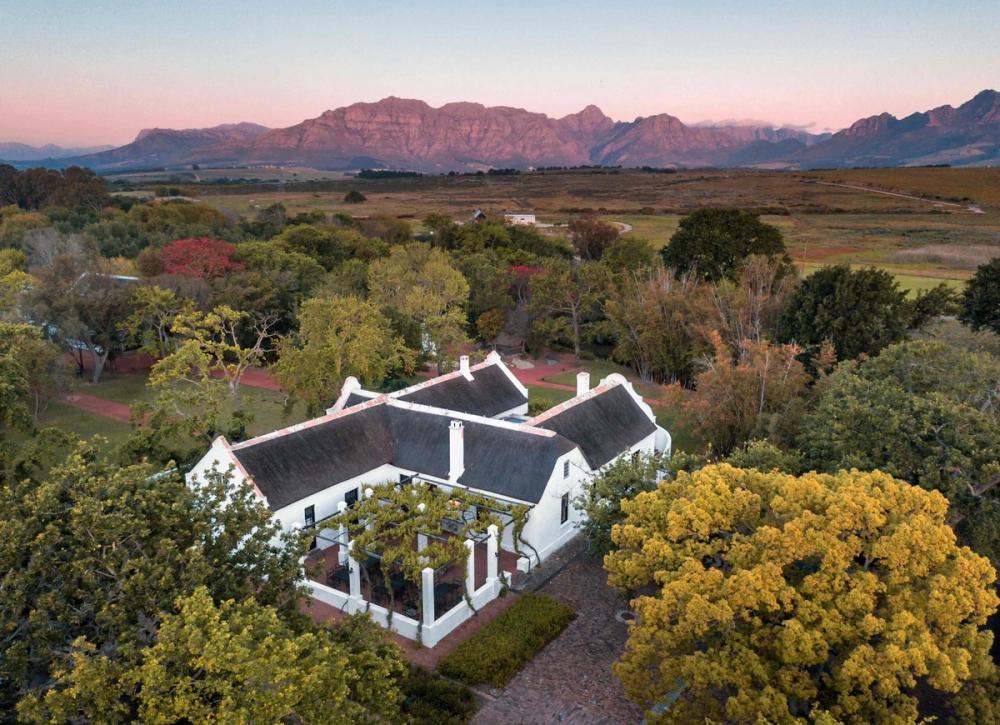
The Spier Manor House is also the winery’s link back to the history of winemaking in South Africa
Since 2014, we have used the CCC Confronting Climate Change carbon calculator to measure the carbon footprint of our direct wine operations and sought ways to reduce this. Amongst other plans, over the next couple of years, we will be mapping the carbon footprint of our entire supply chain and working with our suppliers to develop ways to reduce their emissions.
We aim to reach net zero by 2030. This means reducing our carbon footprint as much as possible, and offsetting the rest, to align with the Paris Agreement’s goal of limiting global warming to 1.5°C. Our net zero target takes into account the carbon emissions from our direct operations, our energy consumption as well as our entire value chain (including suppliers and customers).
If someone wants to work with you what is the best way in getting in touch?
Contact Pierre Nortje, international sales manager at Pierren@spier.co.za, or Marina Kaiser, international brand manager at marinak@spier.co.za.
- You can find out more about Spier at its website here.
- You can taste Spier’s range at Jascots portfolio tasting at London’s Westminster Chapel on February 7. Click here for more details.
Star Wine List of the Year UK with the The Buyer 2023
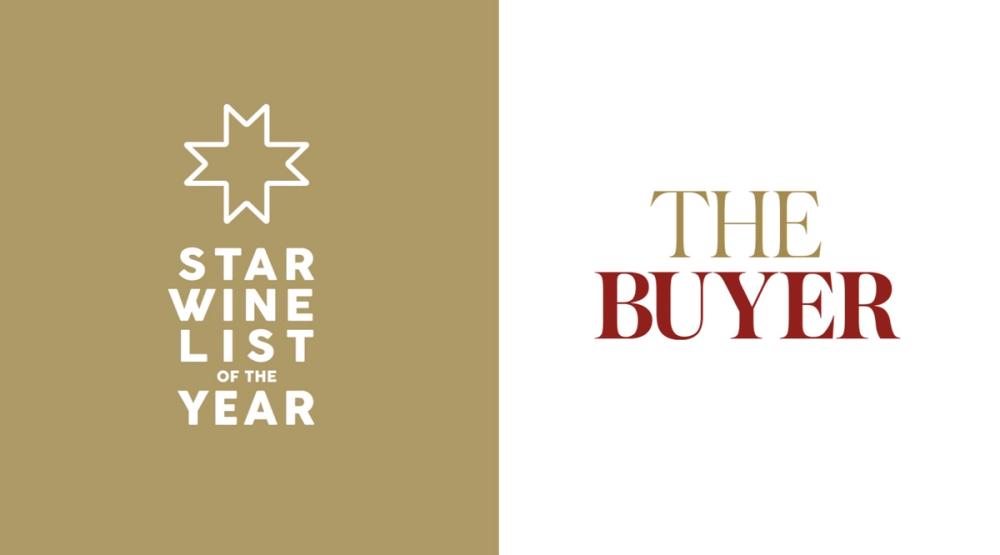
Entries for the 2023 Star Wine List of the Year UK with the The Buyer are now closed and the winners will be announced at the awards ceremony at London’s Winemakers Club on February 20. Here are the categories and awards up for grabs, our partners and the esteemed judging panel of award-winning sommeliers. The winners of the International Categories go forward to Star Wine List’s International Final in June, where they will face off with the category winners from other countries and continents, such as South Africa, Australia and the Nordics.
International Categories
- Best Austrian Wine List, in partnership with Austrian Wine
- Grand Prix, in partnership with Bibendum.
(For wine lists with more than 600 references). - Best Medium-Sized List
(Wine lists with between 200-600 references). - Best Short List
(Wine lists up to 200 reference) - Best By the Glass List
- Best Sparkling Wine List, in partnership with Nyetimber.
- Special Jury Prize
(For a wine list that does something out of the ordinary) - Sustainable Wine List, in partnership with Spier.
UK categories
These are awards that are specific to the UK and include:
- Best Up-and-Coming Wine List, in partnership with Chвteau Palmer
(For a new wine list or a wine list that is going places). - Best California Wine List, presented by Louis M. Martini.
- Bordeaux New Generation List, in partnership with CIVB
- (For a wine list featuring a new generation of Bordeaux wines)
- Best New Zealand Wine List, in partnership with New Zealand Winegrowers
Judging Panel
The judging panel for the 2023 awards is once again chaired by Ruth Spivey and also a team of award winning sommeliers including:

This year’s panel of judges…
• Piotr Pietras MS, Terroiryści, Poland
• Ronan Sayburn MS, chief executive, Court of Master Sommeliers
• Jan Konetzki, independent sommelier
Awards ceremony
The awards are once again being hosted at The Winemakers Club in London and will also include a tasting of wines from the category sponsors and the chance to network and meet other finalists and key on-trade wine figures.
